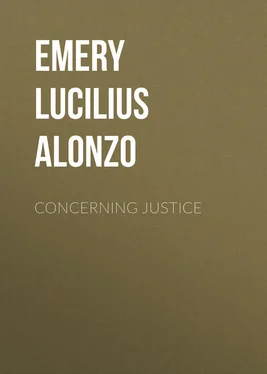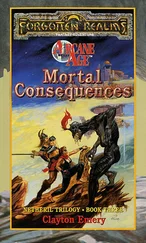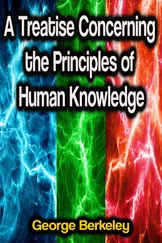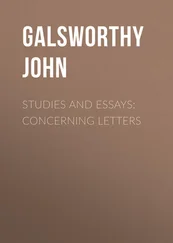Lucilius Emery - Concerning Justice
Здесь есть возможность читать онлайн «Lucilius Emery - Concerning Justice» — ознакомительный отрывок электронной книги совершенно бесплатно, а после прочтения отрывка купить полную версию. В некоторых случаях можно слушать аудио, скачать через торрент в формате fb2 и присутствует краткое содержание. Жанр: foreign_antique, foreign_prose, на английском языке. Описание произведения, (предисловие) а так же отзывы посетителей доступны на портале библиотеки ЛибКат.
- Название:Concerning Justice
- Автор:
- Жанр:
- Год:неизвестен
- ISBN:нет данных
- Рейтинг книги:3 / 5. Голосов: 1
-
Избранное:Добавить в избранное
- Отзывы:
-
Ваша оценка:
- 60
- 1
- 2
- 3
- 4
- 5
Concerning Justice: краткое содержание, описание и аннотация
Предлагаем к чтению аннотацию, описание, краткое содержание или предисловие (зависит от того, что написал сам автор книги «Concerning Justice»). Если вы не нашли необходимую информацию о книге — напишите в комментариях, мы постараемся отыскать её.
Concerning Justice — читать онлайн ознакомительный отрывок
Ниже представлен текст книги, разбитый по страницам. Система сохранения места последней прочитанной страницы, позволяет с удобством читать онлайн бесплатно книгу «Concerning Justice», без необходимости каждый раз заново искать на чём Вы остановились. Поставьте закладку, и сможете в любой момент перейти на страницу, на которой закончили чтение.
Интервал:
Закладка:
Upon the revival of the study of law and jurisprudence in the 11th and 12th centuries several of the more famous jurists of that time, Azo, Irnerius, Placentinus and others, essayed definitions of justice, but they do not seem to have improved upon Ulpian. Their definitions were vitiated by theological assumptions and none of them has become a text for commentators or students. Neither in modern times has any definition of justice been suggested which has received such universal assent as did that of Ulpian in his time and for centuries afterward. We may therefore return to Ulpian's definition as our point of departure, since his definition is substantially that suggested earlier by Aristotle, and observations on the later will also apply in many respects to the earlier.
Ulpian's definition is elegant in style, but it does not carry us very far in our inquiry. We are told indeed that justice is a state or disposition of the mind, the disposition to render to everyone his right or, as put by Aristotle, is the disposition to distribute according to desert. It was this statement that captured the medieval jurists and which they made their text, but it is now regarded as incomplete and even inaccurate. One may have the disposition, the desire, the will, to render to every one his right, but unless he can know what is his fellow's right he may unwittingly fail to accord it to him and thus unwittingly do injustice. It evidently is not enough to have the disposition or will; hence the definition is incomplete, and any definition is incomplete which does not furnish a criterion for determining what is the given man's right.
But the definition as far as it does go is not strictly accurate. The man of malevolent disposition who would wrong his fellow if he dared, may yet, to avoid unpleasant consequences to himself, render fully to every other man his right. It would seem, therefore, that justice is an attribute or quality of conduct rather than a disposition or state of mind, and of conduct toward others rather than of conduct toward one's self. It is only of the conduct of men in their relations to other men that we can predicate justice or injustice. One's conduct may result in good or evil to himself and so be wise or unwise, but assuming, what probably is never the fact, that it affects only himself, in no way affects any other, his conduct is neither just nor unjust. Robinson Crusoe, until the arrival of the man Friday, had no occasion to consider our problem.
But, admitting that each man's conduct, whether active or passive, does affect some other person, what is the criterion by which to determine the justice or injustice of that conduct? It is not enough to say that if the conduct in any degree impedes the other person in the enjoyment of any of his rights it is unjust, otherwise not; for then the question comes to the front, what is the right of that other in the given case? Indeed, this latter question is the crux of the problem of justice. The derivation of the word "justice" also shows this. The Latin justitia or justitium according to some scholars is compounded of jus , right, and sisto or steti , to place, or to cause to stand, and hence the whole word may be held to signify the maintenance of jus or right. With the question of jus or right correctly answered, the problem of justice is practically solved. The right of the one being known, the effect of any particular conduct of another on that right, and consequently its justice or injustice, is determinable with comparative ease. Hence to make progress in our inquiry we must consider the problem of rights, for we almost instinctively accept as correct so much of Ulpian's definition as implies that justice is to be predicated of the act of rendering to everyone his right. We instinctively feel that if we render to another his full right we do him full justice, and that if we ourselves are deprived of any right we suffer injustice. What is his or our right is therefore the real question. This will be our next subject for consideration.
CHAPTER II
THE PROBLEM OF RIGHTS. DIFFERENT THEORIES AS TO THE SOURCE OF RIGHTS
The problem of Rights is also centuries old. There have been in later years glowing tributes to human rights even more than to justice, though the sentiment of rights is egoistic, while that of justice is in some measure altruistic. There have also been diverse opinions in the past, as now, as to the source, foundation, and nature of what are called Rights, as there were and are of justice. A brief review of these opinions and of the changes in them may present the problem more vividly.
In patriarchal times there could be no political questions about rights. The head of the family was supreme and sole ruler and judge. Even in Rome under an organized civil government the pater familias was long left the power of life and death over the members of his family. When families and tribes were combined in states, government was long conducted on the theory that as the individual had belonged to the family or tribe into which he was born or adopted, so he now belonged to the state, to be directed and disposed of as the state might order. What he might enjoy of life, liberty, or property was the gift of the state, subject to revocation at will. Plato reflects this theory in making Hippias declare that the measure of man's right is what the state commands. The total abolition of the liberty of innocent persons by holding them in slavery was not deemed any infringement of any right of theirs. This theory was acted upon in democratic as well as in monarchical states. Slavery was as lawful in Athens, Sparta, and republican Rome as in Persia or Egypt. True, there were rebellions and revolutions at times, but, though sometimes provoked by oppression, they were usually to acquire the power of government and not in defense of individual rights. The Plebeians revolted to obtain a greater share in the governing power. The civil wars of Marius and Sulla were not waged for liberty but for power. In Sicily, where the slaves under Eunus had for a time wrested the governing power from their masters, they did not hesitate to enslave in turn.
The doctrine that the individual man has some rights by nature which the state ought not to disregard had no place in ancient nor medieval governments. The English Magna Charta purports to be a grant from the king and, though framed by the barons and forced upon the king, it contains no assertion of rights by nature. The rights claimed were claimed as accustomed rights previously conferred and enjoyed, such as the laws and customs of the time of Henry I. Apart from provisions as to improved methods of administration, the language of the Charter implies restoration rather than revolution.
So in the Petition of Right in the reign of Charles I, no appeal was made to natural rights, but the demand was for accustomed privileges, for the observance by the king of the old laws and customs of the realm, especially those in force under Edward I and Edward III. In the Petition, the Charter of King John is cited, not as a schedule of the rights of man in the abstract, but as "The Great Charter of the Liberties of England," implying that the liberties therein named were not the natural heritage of men in general but the peculiar heritage of Englishmen, under English law. The prayer of the Petition is simply that the king shall accord the people of England "their rights and liberties according to the laws and statutes of the realm."
So in the Bill of Rights framed by Parliament and approved by William and Mary upon their accession to the throne, it was not asserted that the acts of James II complained of were contrary to any natural right of the subject, but that they "were utterly and directly contrary to the known laws and statutes and freedom of this realm." The purpose of the Bill of Rights was declared by the Parliament in behalf of the people to be "for the vindicating and asserting their ancient rights and liberties." In the earlier remonstrances of the legislatures of the English colonies in America against various acts of the king and Parliament, only the accustomed rights of Englishmen were claimed to be violated. The colonists, at first, claimed as against king and Parliament no rights not accorded to Englishmen in England.
Читать дальшеИнтервал:
Закладка:
Похожие книги на «Concerning Justice»
Представляем Вашему вниманию похожие книги на «Concerning Justice» списком для выбора. Мы отобрали схожую по названию и смыслу литературу в надежде предоставить читателям больше вариантов отыскать новые, интересные, ещё непрочитанные произведения.
Обсуждение, отзывы о книге «Concerning Justice» и просто собственные мнения читателей. Оставьте ваши комментарии, напишите, что Вы думаете о произведении, его смысле или главных героях. Укажите что конкретно понравилось, а что нет, и почему Вы так считаете.












